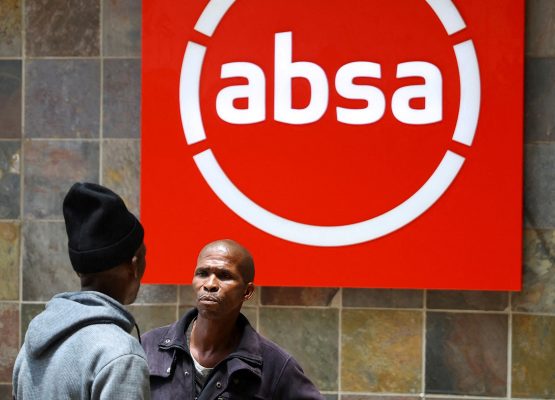Absa reports highest earnings in its history despite hit from Ghana

South African listed banking group Absa reported its highest-ever profits, despite taking impairments from its exposure to Ghana, which is marred in a sovereign debt crisis.
Absa, SA’s third largest bank by assets, delivered its results for the year to December 2022 on Monday, showing a 13% rise in normalised headline earnings to R21 billion, boosted in part by stronger income, helping the bank increase profits well above pandemic levels.
However, the group grew impairment charges by 61% or 82% in constant currency terms, to R13.7 billion, after it was forced to raise R2.7 billion in coverage to cushion it against its Ghana sovereign debt exposures as well as delinquencies in the domestic South African retail portfolios, the bank said.
Ghana, the overly indebted west African nation, has been facing increased economic pressure and has missed large payments on its Eurobonds and commercial loans, thrusting it into deeper sovereign debt struggles.
Ghana’s Finance Minister Ken Ofori-Atta announced last year that the government’s plan to undertake a debt operation programme, the Domestic Debt Exchange Programme (DDEP) to give it time to bring its debt to sustainable levels by way of exchanging existing domestic bonds for a set of four with maturation dates of 2027, 2029, 2032 and 2037.
The debt exchange plans would see 137.3 billion Ghanaian cedis or over R202 billion in local bonds exchanged for new ones, its finance ministry said in a statement.
“Excluding Ghana sovereign-related charges, the credit loss ratio was 0.91%, slightly above the mid-point of the group’s through-the-cycle target range of 75 to 100 basis points,” Absa said.
Even so, the lender grew non-interest income by 18% to R38.4 billion, from R32.5 billion previously with interest rates reaching higher levels than it expected. This accounted for 38.9% of total revenue, compared to 37.9%, Absa said.
During the period, the South African Reserve Bank (Sarb) responded to sticky inflation in the country by raising interest rates by a cumulative 350 basis points, which the bank benefitted from.
The endowment effect seen in South Africa’s banking sector has been evidenced by the record profits banks have been reporting and healthy dividend payouts to shareholders.
Absa declared a final dividend of 650 cents per share leading to a total dividend of 1 300 cents per share for the period, 66% higher than the previous year.
The group grew revenue 15% to R98.9 billion, the bank said.
Loans growth was diverse during the period, with the lender’s Retail and Business Banking as well as its Everyday Banking units, growing advances the most. The divisions saw double-digit rises of 13% and 12% respectively. While the Product Solutions Cluster and its corporate banking segments saw loans growth of 9% and 8% respectively.

